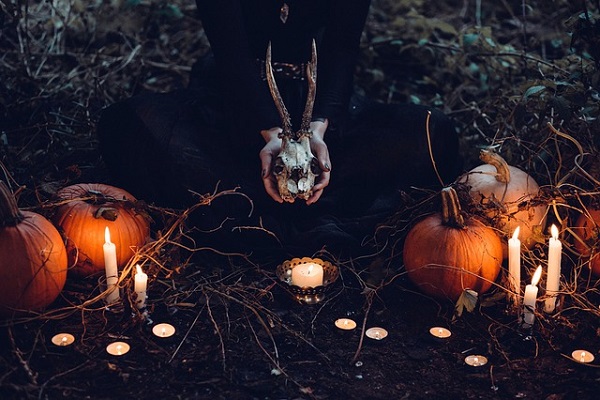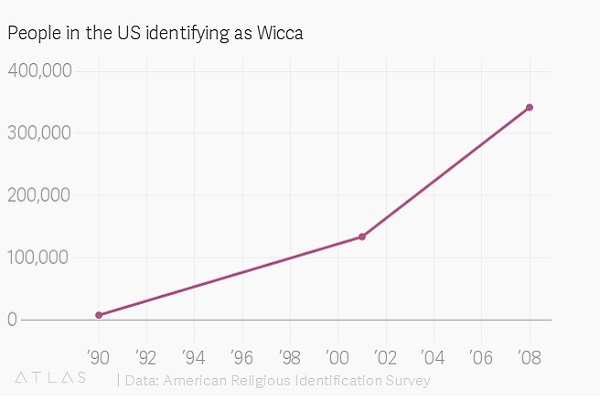
Witches Outnumbers Presbyterians Among U.S. Millennials
- By Alison Lesley --
- 11 Oct 2018 --

Wicca, Paganism on the rise
A survey by Trinity College discovered proponents of Paganism, witchcraft, and Wiccahave risen by significant numbers, noticeably among millennials.[/tweetit] In 1990, the number of self-identified Wiccans was 8,000. In 2008, the number has grown explosively bigger to 340,000. The numbers have not stopped growing. The Pew Research Center concurs. In 2014, it found that 0.4 percent of Americans, coming to about 1.5 million individuals, identify themselves as Pagan or Wiccan. The healthy numbers are such that many believe the number of American witches could be greater than the number of mainline Presbyterians.
Witches Outnumbers Presbyterians Among U.S. Millennials[/tweetthis]
Since the U.S. Government does not collect granular level religious data, thanks to the separation of the state from the church, a number of organizations have tried to squeeze the numbers. The state of Connecticut's Trinity College was one of those many organizations.
The Pew Research Center cautions readers on the many subtleties linked with the data. It pointed out that Wicca and witchcraft are completely dissimilar from each other. One could be a witch and not be a Wiccan, just like one could be a Christian but may not be an Evangelical. Only Wicca is regarded as a kind of modern religion, but witchcraft is not. Wicca can be described as a modern religion built on age-old witchcraft traditions. Millennials have fueled this rise in Wicca.

Wicca is mostly a religious movement with its anchor firmly in the west. The first mentions of Wicca are found in the middle of the 20th century in the United Kingdom and the United States. The belief system draws inspiration from pagan traditions prevalent in pre-Christian Wales, Ireland, and Scotland. As per its proponents, Wicca promotes independent thought and individual will. It encourages learning. Proponents get an understanding of nature and earth.
"It makes sense that witchcraft and the occult would rise as society becomes increasingly postmodern. The rejection of Christianity has left a void that people, as inherently spiritual beings, will seek to fill." https://t.co/wIiWbJKBem
— Jeremy Sarber (@jeremysarber) October 11, 2018
Thanks to Wicca, mysticism has gone mainstream. Such a phenomena makes perfect sense when it is considered how the practice perfectly overlaps with interests of millennial women. Witchcraft makes the perfect religion for those liberal millennials already involved in meditation and yoga, new-age spirituality, and mindfulness. The already present mental foundation helps a person to participate in new moon gatherings or pagan holidays. Many participants do dig deeper into the spiritual concepts governing these practices. Social media has also helped the rise. Many witches "trend" with each post, bringing new and curious adherents in.


















